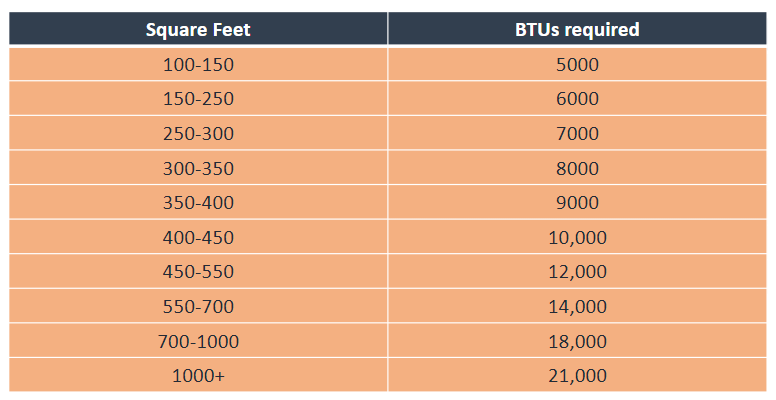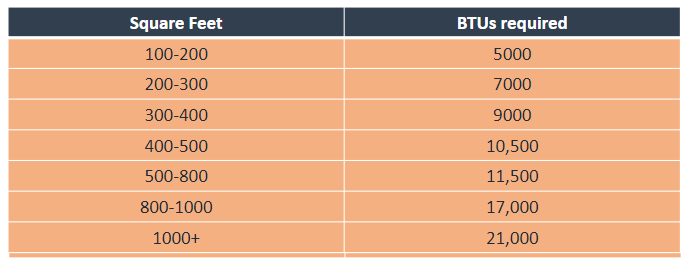An air conditioner system is beneficial throughout the year. In the summer, it will cool down the temperature to an optimal level. It will also keep you warm in the winter. But for optimal effects, it’s necessary to pick the right AC power.
If you are wondering “what size air conditioner do I need,” this guide will explain all the details. Here is what you should know about sizing your AC!
Why Is Air Conditioner Size Important?
Your initial stance might be that you’ll take a bigger AC for better results. However, that’s the wrong approach because it might compromise air quality.
The unit will enter short-cycling, which means it turns off and on again frequently. As a result, it will affect indoor air humidity levels.
If you want the best air in your home, it’s imperative to pick an optimal AC size. Here are the other benefits of sizing your air conditioner:
- Maximum comfort. Even if the temperature is right, you could feel the humidity or discomfort once you enter the room. A suitable AC will ensure you are as comfortable as possible at all times.
- Enhanced efficiency. Utility bills can be high with an HVAC system active. The right unit size will also ensure you don’t spend any more energy than necessary.
- Improved system lifespan. If the AC turns on and off frequently, that increases wear and tear. Sizing the unit properly reduces repairs and maximizes the appliance’s lifespan.
How to Calculate AC Size for Your Place?
The crucial factor when sizing your air conditioner is the room size. You’ll need the exact size of the area you need to heat or cool down before you can use an AC size calculator. It’s easy to calculate the square feet in a room – all you do is multiply the width and length. A 150 sq. ft. room is ten feet long and 15 feet wide. Once you have the size, you can consult the sizing charts below to pick a suitable AC.
This is not an exact science, so here are some other factors that could affect the AC power you need:
- If you have excellent insulation, the air conditioning will be more efficient. But poor insulation requires additional AC power.
- The room orientation might lead to too much sunlight entering, which means you need a more powerful AC to cool it down in the summer.
- High ceilings in rooms might also compromise the efficiency of air conditioning.
What Does BTU Stand For?
If you read an AC description and come across this term, you wonder, “what does BTU stand for?” This is an acronym that’s short for British Thermal Unit. A single BTU is a heat necessary to cool or heat a pound of water at sea level by 1F.
For air conditioning, BTUs describe the power or capability of the unit. It shows how much heat it can remove or produce. The higher the BTU rating, the more powerful the AC.
Size Chart for Different Types of Air Conditioners
There are 2 options you can choose between for your AC unit installment – through the wall or the window unit. The former places the vents on the back side, while the latter requires using the sides for vents. Each type comes with its benefits, and we’ll discuss how to choose adequate capabilities to keep the temperature optimal!
Through The Wall AC Size Chart
These units use a wall sleeve, and they fit tightly. Thanks to that, through the wall AC setups are better in line with the overall décor since they are less obtrusive.
It’s worth noting these devices focus on heating or cooling a single room first. It won’t be as effective in other areas separate from the one where you install it. That being said, you can check out this AC size chart to learn about a suitable size.

Window Unit AC Size Chart
These might be affordable, but there are some setup considerations because you can’t place window units anywhere. You’ll find these more suitable for smaller rooms and spaces, but they are less energy efficient for large areas.
Here is an air conditioner BTU chart that will help for window AC units!

SCHEDULE YOUR FREE ESTIMATE
We Provide Expert Air Conditioning Services in Las Vegas, NV



